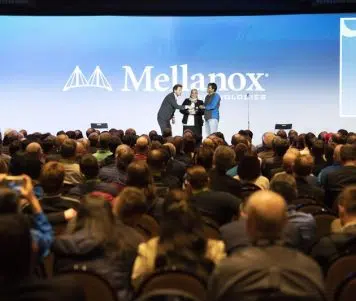
The 10 Most Important Tips for Planning a Business Event in 2025
Planning a business event in 2025? You probably already know -it takes more than just checking the basics. Today’s audiences expect more, and with the rise of new technologies and a deeper understanding of what truly captivates people, the traditional event format just doesn’t cut it anymore. Whether you’re organizing a product launch or a professional conference, here are 10 essential tips to help you create an event that leaves a lasting impression.
Clear Intentions for the Event
The first and most crucial step in planning a business event is to define its goal clearly and precisely. Are you organizing a professional conference, a corporate ceremony, a product launch, or perhaps an internal team event? Each type of event calls for a different approach. You need to understand who your target audience is, what message you want to convey, and what emotions you hope to evoke. When your objective is well-defined, every decision – from the theme to the host and the content – becomes more focused and effective.
A Professional Host – More Than Just Welcoming the Guests
The host of your event is one of the key elements that can make the difference between a dull gathering and a truly unforgettable experience. A great host knows how to read the room, adapt to different situations, and respond professionally to anything that unfolds – even unexpected hiccups. It is essential to choose someone with strong improvisation skills, quick decision-making abilities, and the presence to lead the event with both charisma and professionalism. A good host brings the right balance of humor and polish. Remember: the host is not just there to fill time, they shape the entire atmosphere and help turn your event into something truly engaging.
When and How to Incorporate a Performance or a Meal
One of the best ways to make a business event more engaging is by adding a cultural or experiential element. After a series of professional talks or lectures, it is a good idea to give participants a break – something that allows them to unwind and recharge. This could be a meal or a live performance; the goal is to shift the energy, give people a moment to relax, and help them return refreshed and ready for what comes next.
Technology – Smart and Purposeful Use
Technology is transforming the way we run events, and in 2025, the question is no longer whether to use it – but how. There are countless ways to enhance the attendee experience with modern tech: real-time voting kits, dynamic surveys, augmented reality experiences, or virtual meetings. The key is balance, technology should serve the purpose of the event, not overshadow it. When used thoughtfully, it becomes a powerful tool to deepen engagement and elevate the overall experience.
Timing Is Everything
The length of your event is a critical factor in planning. If it runs too long, attendees may lose energy; if it is too short, it might lack impact. The smart move is to start early and keep things tight and purposeful. Design the schedule to include all key elements -lectures, discussions, cultural interludes, and, of course, time for networking and informal connection. A well-timed event keeps people engaged and ensures they leave with value.
Where Should You Hold the Event?
The location of your event is just as important as the content itself. It could be a site with historical charm or an urban vibe, a sleek modern venue, or even an open-air space in nature. The key is choosing a location that aligns with the tone of your event and the message you want to convey. It is also worth incorporating supportive technologies – such as apps that provide attendees with real-time updates about what is happening around the venue.
A Personalized Experience for Every Participant
Tailoring the event to your audience means ensuring that each attendee has a personal and engaging experience. How can you achieve that? For example, tech conferences might feature interactive workshops, while company events focused on special projects can include roundtable discussions or open forums. This way, every participant feels like an active part of the event – not just a passive observer.
Bridging Content and Personal Connection
In 2025, meaningful connections between participants are built not just through content, but also through personal interaction. Strong business relationships form more naturally when there is space for informal moments – private conversations, casual exchanges, and personal touchpoints. Even in highly professional settings, it is important to create opportunities for attendees to connect on a more human level.
Sponsors and Strategic Partnerships
Make sure to integrate your sponsors or business partners into the event in a thoughtful and effective way. There are creative ways to showcase these partnerships without disrupting the attendee experience and even adding value. Consider interactive displays or collaborations with tech companies or external vendors. When done right, each partner can enhance the overall event and contribute meaningfully to its success.
How Do You Make Sure the Event Is Remembered?
Once the event is over, the real challenge is making sure attendees feel it was more than just another gathering. Send out thank-you notes, share professional photos on your business’s social media pages, and make sure each person leaves with something to take home – whether it is a meaningful memory, a practical takeaway, or a small memento that keeps your event top of mind.







